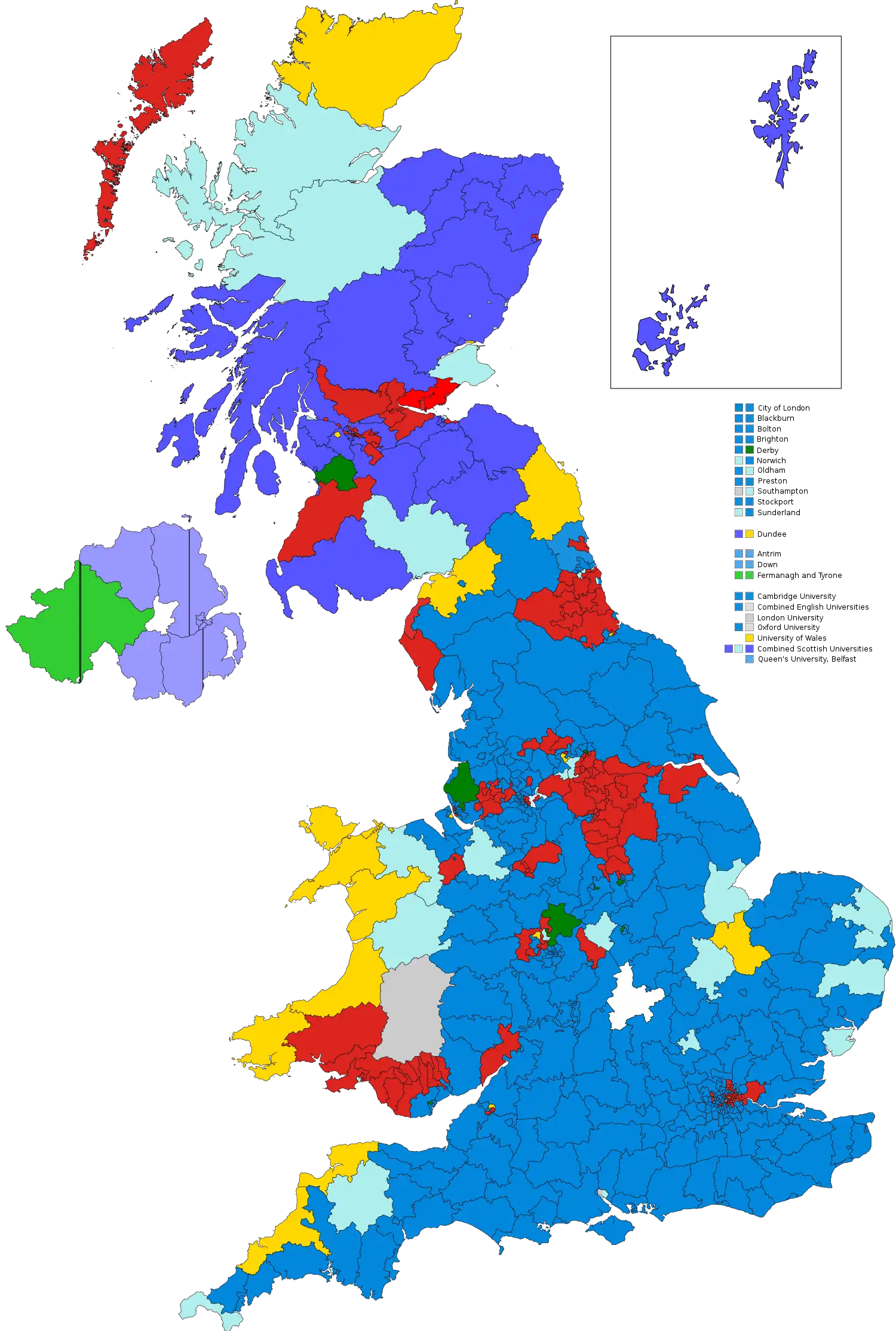Barnstaple (UK Parliament constituency)
Barnstaple was a constituency centred on the town of Barnstaple in Devon, in the South West of England. It returned two Members of Parliament to the House of Commons of the Parliament of the United Kingdom until 1885, thereafter, one.
| Barnstaple | |
|---|---|
| Former County constituency for the House of Commons | |
Barnstaple in Devon 1885-1918 | |
| 1885–1950 | |
| Seats | one |
| Replaced by | North Devon and Torrington |
| 1295–1885 | |
| Seats | two |
| Type of constituency | County constituency |
It was created in 1295 and abolished for the 1950 general election. Most of the area and the town falls into the North Devon seat.
Boundaries
1885–1918: The Municipal Boroughs of Barnstaple and Bideford, and the Sessional Divisions of Bideford and Braunton.
1918–1950: The Municipal Boroughs of Barnstaple and Bideford, the Urban Districts of Ilfracombe, Lynton, and Northam, and the Rural Districts of Barnstaple and Bideford (including Lundy Island).
Members of Parliament
1295–1885
1885–1950
| Year | Member | Party | |
|---|---|---|---|
| 1885 | George Pitt-Lewis | Liberal | |
| 1886 | Liberal Unionist | ||
| 1892 | Alfred Billson | Liberal | |
| 1895 | Cameron Gull | Liberal Unionist | |
| 1900 | Ernest Soares | Liberal | |
| 1911 | Godfrey Baring | Liberal | |
| 1918 | Tudor Rees | Liberal | |
| 1922 | Basil Peto | Conservative | |
| 1923 | Tudor Rees | Liberal | |
| 1924 | Basil Peto | Unionist | |
| 1935 | Richard Acland | Liberal | |
| 1942 | Common Wealth | ||
| 1945 | Christopher Peto | Conservative | |
| 1950 | constituency abolished | ||
Election results
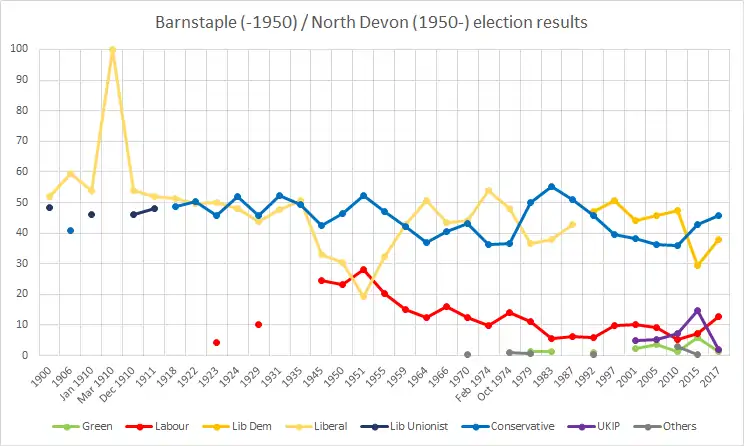
Elections in the 1830s
| Party | Candidate | Votes | % | ±% | |
|---|---|---|---|---|---|
| Tory | Stephens Lyne-Stephens | 370 | 39.0 | ||
| Tory | George Tudor | 332 | 35.0 | ||
| Tory | Colin Campbell | 246 | 25.9 | ||
| Majority | 86 | 9.1 | |||
| Turnout | 522 | ||||
| Tory hold | Swing | ||||
| Tory hold | Swing | ||||
| Party | Candidate | Votes | % | ±% | |
|---|---|---|---|---|---|
| Tory | Frederick Hodgson | 245 | 37.9 | N/A | |
| Whig | John Chichester | 218 | 33.7 | N/A | |
| Tory | George Tudor | 183 | 28.3 | −6.7 | |
| Turnout | 381 | ||||
| Majority | 27 | 4.2 | −4.9 | ||
| Tory hold | Swing | N/A | |||
| Majority | 35 | 5.4 | N/A | ||
| Whig gain from Tory | Swing | N/A | |||
| Party | Candidate | Votes | % | ±% | |
|---|---|---|---|---|---|
| Whig | John Chichester | 519 | 42.5 | +8.8 | |
| Tory | Charles St. John Fancourt | 349 | 28.6 | −37.6 | |
| Radical | Thomas Northmore | 225 | 18.4 | New | |
| Whig | George Hervey | 129 | 10.6 | N/A | |
| Turnout | 684 | 95.0 | |||
| Registered electors | 720 | ||||
| Majority | 170 | 13.9 | +8.5 | ||
| Whig hold | Swing | −5.0 | |||
| Majority | 124 | 10.1 | +5.9 | ||
| Tory hold | Swing | −21.0 | |||
| Party | Candidate | Votes | % | ±% | |
|---|---|---|---|---|---|
| Whig | John Chichester | 542 | 44.9 | +2.4 | |
| Conservative | Charles St. John Fancourt | 528 | 43.7 | +15.1 | |
| Whig | James Stewart | 134 | 11.1 | +0.5 | |
| Conservative | J Woolley | 3 | 0.2 | N/A | |
| Turnout | 748 | 94.7 | −0.3 | ||
| Registered electors | 790 | ||||
| Majority | 14 | 1.2 | −12.7 | ||
| Whig hold | Swing | −2.6 | |||
| Majority | 394 | 32.6 | +22.5 | ||
| Conservative hold | Swing | +6.8 | |||
| Party | Candidate | Votes | % | ±% | |
|---|---|---|---|---|---|
| Whig | John Chichester | 387 | 35.5 | −20.5 | |
| Conservative | Frederick Hodgson | 356 | 32.6 | −11.1 | |
| Conservative | William Best[17] | 348 | 31.9 | +20.8 | |
| Majority | 31 | 2.9 | +1.7 | ||
| Turnout | 666 | 83.9 | −10.8 | ||
| Registered electors | 794 | ||||
| Whig hold | Swing | −12.3 | |||
| Conservative hold | Swing | −0.4 | |||
Elections in the 1840s
| Party | Candidate | Votes | % | ±% | |
|---|---|---|---|---|---|
| Conservative | Frederick Hodgson | 360 | 25.8 | −6.8 | |
| Conservative | Montague Gore | 349 | 25.0 | −39.5 | |
| Whig | John Fortescue | 346 | 24.7 | +7.0 | |
| Whig | John Chichester | 343 | 24.5 | +6.8 | |
| Majority | 3 | 0.2 | N/A | ||
| Turnout | 701 | 86.9 | +3.0 | ||
| Registered electors | 771 | ||||
| Conservative hold | Swing | −6.9 | |||
| Conservative gain from Whig | Swing | −23.2 | |||
| Party | Candidate | Votes | % | ±% | |
|---|---|---|---|---|---|
| Conservative | Richard Bremridge | 464 | 38.2 | +13.2 | |
| Whig | John Fortescue | 396 | 32.6 | +6.8 | |
| Conservative | Frederick Hodgson | 356 | 29.3 | −19.9 | |
| Turnout | 608 (est) | 77.8 (est) | −9.1 | ||
| Registered electors | 781 | ||||
| Majority | 68 | 5.6 | +5.4 | ||
| Conservative hold | Swing | +4.9 | |||
| Majority | 40 | 3.3 | N/A | ||
| Whig gain from Conservative | Swing | +6.8 | |||
Elections in the 1850s
| Party | Candidate | Votes | % | ±% | |
|---|---|---|---|---|---|
| Conservative | William Fraser | 406 | 35.9 | +6.6 | |
| Conservative | Richard Bremridge | 393 | 34.7 | −3.5 | |
| Whig | Hugh Fortescue[12] | 332 | 29.4 | −3.2 | |
| Majority | 61 | 5.3 | −0.3 | ||
| Turnout | 732 (est) | 94.9 (est) | +16.1 | ||
| Registered electors | 771 | ||||
| Conservative hold | Swing | +4.1 | |||
| Conservative gain from Whig | Swing | −1.0 | |||
The election was declared void on petition, due to bribery, causing a by-election.[18]
| Party | Candidate | Votes | % | ±% | |
|---|---|---|---|---|---|
| Conservative | John Laurie | 333 | 35.4 | −0.5 | |
| Conservative | Richard Samuel Guinness | 323 | 34.3 | −0.4 | |
| Whig | William Tite[19] | 286 | 30.4 | +1.0 | |
| Majority | 37 | 3.9 | −1.4 | ||
| Turnout | 614 (est) | 78.3 (est) | −16.6 | ||
| Registered electors | 784 | ||||
| Conservative hold | Swing | −0.5 | |||
| Conservative hold | Swing | −0.5 | |||
Laurie's election was declared void on petition, due to bribery, causing a by-election.[20]
| Party | Candidate | Votes | % | ±% | |
|---|---|---|---|---|---|
| Conservative | George Buck | Unopposed | |||
| Conservative hold | |||||
| Party | Candidate | Votes | % | ±% | |
|---|---|---|---|---|---|
| Conservative | William Fraser | 344 | 34.7 | −1.2 | |
| Conservative | John Laurie | 252 | 25.4 | −9.3 | |
| Radical | James Taylor[21] | 180 | 18.2 | N/A | |
| Peelite | George Potts[22] | 179 | 18.1 | N/A | |
| Conservative | Henry Thoby Prinsep | 36 | 3.6 | N/A | |
| Majority | 72 | 7.3 | +2.0 | ||
| Turnout | 496 (est) | 66.8 (est) | −28.1 | ||
| Registered electors | 742 | ||||
| Conservative hold | Swing | N/A | |||
| Conservative hold | Swing | N/A | |||
- Prinsep withdrew from the election during polling.[23]
| Party | Candidate | Votes | % | ±% | |
|---|---|---|---|---|---|
| Liberal | John Ferguson Davie | 348 | 34.0 | +15.8 | |
| Liberal | George Potts | 266 | 26.0 | +7.9 | |
| Conservative | George Stucley | 210 | 20.5 | −4.9 | |
| Conservative | William Fraser | 199 | 19.5 | −15.2 | |
| Majority | 56 | 5.5 | N/A | ||
| Turnout | 512 (est) | 73.8 (est) | +7.0 | ||
| Registered electors | 693 | ||||
| Liberal gain from Conservative | Swing | +12.9 | |||
| Liberal gain from Conservative | Swing | +9.0 | |||
Elections in the 1860s
Potts' death caused a by-election.
| Party | Candidate | Votes | % | ±% | |
|---|---|---|---|---|---|
| Liberal | Thomas Lloyd | 305 | 51.8 | −8.2 | |
| Conservative | Richard Bremridge | 284 | 48.2 | +8.2 | |
| Majority | 21 | 3.6 | −1.9 | ||
| Turnout | 589 | 79.8 | +6.0 | ||
| Registered electors | 738 | ||||
| Liberal hold | Swing | −8.2 | |||
On petition, Lloyd's election was declared void due to bribery and, on 15 April 1864, Bremridge was declared elected.[24]
| Party | Candidate | Votes | % | ±% | |
|---|---|---|---|---|---|
| Conservative | George Stucley | 364 | 28.9 | +8.4 | |
| Liberal | Thomas Cave | 331 | 26.3 | −7.7 | |
| Conservative | Howell Gwyn | 302 | 24.0 | +4.5 | |
| Liberal | Henry Hawkins | 262 | 20.8 | −5.2 | |
| Turnout | 630 (est) | 88.0 (est) | +14.2 | ||
| Registered electors | 715 | ||||
| Majority | 33 | 2.6 | N/A | ||
| Conservative gain from Liberal | Swing | +7.4 | |||
| Majority | 29 | 2.3 | −3.2 | ||
| Liberal hold | Swing | −7.1 | |||
| Party | Candidate | Votes | % | ±% | |
|---|---|---|---|---|---|
| Liberal | Thomas Cave | 791 | 35.2 | +8.9 | |
| Conservative | Charles Henry Williams | 788 | 35.1 | −17.8 | |
| Liberal | William Herbert Evans[26] | 667 | 29.7 | +8.9 | |
| Turnout | 1,517 (est) | 95.1 (est) | +7.1 | ||
| Registered electors | 1,596 | ||||
| Majority | 3 | 0.1 | -2.2 | ||
| Liberal hold | Swing | +8.9 | |||
| Majority | 121 | 5.4 | +2.8 | ||
| Conservative hold | Swing | −8.9 | |||
Elections in the 1870s
| Party | Candidate | Votes | % | ±% | |
|---|---|---|---|---|---|
| Liberal | Thomas Cave | 757 | 28.7 | −6.5 | |
| Liberal | Samuel Danks Waddy | 675 | 25.6 | −4.1 | |
| Conservative | John Fleming | 622 | 23.6 | +6.0 | |
| Conservative | John Holt[27] | 580 | 22.0 | +4.4 | |
| Majority | 53 | 2.0 | +1.9 | ||
| Turnout | 1,317 (est) | 82.8 (est) | −12.3 | ||
| Registered electors | 1,591 | ||||
| Liberal hold | Swing | −5.5 | |||
| Liberal gain from Conservative | Swing | −5.1 | |||
Elections in the 1880s
Waddy resigned in order to contest Sheffield, causing a by-election.
| Party | Candidate | Votes | % | ±% | |
|---|---|---|---|---|---|
| Liberal | Newton Wallop | 817 | 53.1 | −1.2 | |
| Conservative | Robert Carden | 721 | 46.9 | +1.3 | |
| Majority | 96 | 6.2 | +4.2 | ||
| Turnout | 1,538 | 93.4 | +10.6 (est) | ||
| Registered electors | 1,646 | ||||
| Liberal hold | Swing | −1.3 | |||
| Party | Candidate | Votes | % | ±% | |
|---|---|---|---|---|---|
| Conservative | Robert Carden | 856 | 35.9 | +12.3 | |
| Liberal | Newton Wallop | 811 | 34.0 | +5.3 | |
| Liberal | Henry Grenfell[28] | 720 | 30.2 | +4.6 | |
| Majority | 45 | 1.9 | N/A | ||
| Turnout | 1,194 (est) | 72.5 (est) | −10.3 (est) | ||
| Registered electors | 1,646 | ||||
| Conservative gain from Liberal | Swing | +3.5 | |||
| Liberal hold | Swing | −0.8 | |||
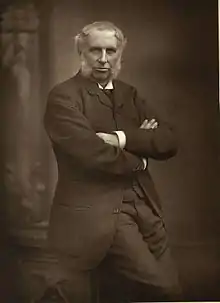
| Party | Candidate | Votes | % | ±% | |
|---|---|---|---|---|---|
| Liberal | George Pitt-Lewis | 4,577 | 55.1 | −9.1 | |
| Conservative | Arthur Kekewich | 3,734 | 44.9 | +9.0 | |
| Majority | 843 | 10.2 | N/A | ||
| Turnout | 8,311 | 81.6 | +9.1 (est) | ||
| Registered electors | 10,189 | ||||
| Liberal win | |||||
| Party | Candidate | Votes | % | ±% | |
|---|---|---|---|---|---|
| Liberal Unionist | George Pitt-Lewis | 4,222 | 58.8 | +13.9 | |
| Liberal | Isaac Leadam | 2,960 | 41.2 | −13.9 | |
| Majority | 1,262 | 17.6 | N/A | ||
| Turnout | 7,182 | 70.5 | −11.1 | ||
| Registered electors | 10,189 | ||||
| Liberal Unionist gain from Liberal | Swing | +13.9 | |||
Elections in the 1890s

| Party | Candidate | Votes | % | ±% | |
|---|---|---|---|---|---|
| Liberal | Alfred Billson | 4,383 | 50.9 | +9.7 | |
| Liberal Unionist | W Leedham White | 4,236 | 49.1 | −9.7 | |
| Majority | 147 | 1.8 | N/A | ||
| Turnout | 8,619 | 82.5 | +12.0 | ||
| Registered electors | 10,442 | ||||
| Liberal gain from Liberal Unionist | Swing | +9.7 | |||
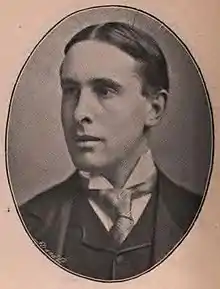
| Party | Candidate | Votes | % | ±% | |
|---|---|---|---|---|---|
| Liberal Unionist | Cameron Gull | 4,825 | 51.2 | +2.1 | |
| Liberal | Alfred Billson | 4,593 | 48.8 | −2.1 | |
| Majority | 232 | 2.4 | N/A | ||
| Turnout | 9,418 | 86.5 | +4.0 | ||
| Registered electors | 10,885 | ||||
| Liberal Unionist gain from Liberal | Swing | +2.1 | |||
Elections in the 1900s
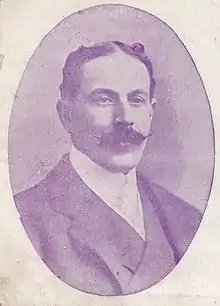
| Party | Candidate | Votes | % | ±% | |
|---|---|---|---|---|---|
| Liberal | Ernest Soares | 5,007 | 51.8 | +3.0 | |
| Liberal Unionist | Cameron Gull | 4,660 | 48.2 | −3.0 | |
| Majority | 347 | 3.6 | N/A | ||
| Turnout | 9,667 | 81.1 | −5.4 | ||
| Registered electors | 11,916 | ||||
| Liberal gain from Liberal Unionist | Swing | +3.0 | |||

| Party | Candidate | Votes | % | ±% | |
|---|---|---|---|---|---|
| Liberal | Ernest Soares | 6,510 | 59.3 | +7.5 | |
| Conservative | Edgar Horne | 4,465 | 40.7 | −7.5 | |
| Majority | 2,045 | 18.6 | +15.0 | ||
| Turnout | 10,975 | 85.0 | +3.9 | ||
| Registered electors | 12,908 | ||||
| Liberal hold | Swing | +7.5 | |||
Elections in the 1910s
| Party | Candidate | Votes | % | ±% | |
|---|---|---|---|---|---|
| Liberal | Ernest Soares | 6,236 | 53.8 | −5.5 | |
| Liberal Unionist | George Borwick | 5,354 | 46.2 | +5.5 | |
| Majority | 882 | 7.6 | −11.0 | ||
| Turnout | 11,590 | 88.3 | +3.3 | ||
| Liberal hold | Swing | −5.5 | |||
| Party | Candidate | Votes | % | ±% | |
|---|---|---|---|---|---|
| Liberal | Ernest Soares | Unopposed | |||
| Liberal hold | |||||
| Party | Candidate | Votes | % | ±% | |
|---|---|---|---|---|---|
| Liberal | Ernest Soares | 6,047 | 54.0 | +0.2 | |
| Liberal Unionist | Charles Sandbach Parker | 5,155 | 46.0 | −0.2 | |
| Majority | 892 | 8.0 | +0.4 | ||
| Turnout | 11,202 | 85.3 | −3.0 | ||
| Liberal hold | Swing | +0.2 | |||
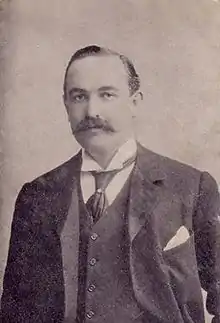
| Party | Candidate | Votes | % | ±% | |
|---|---|---|---|---|---|
| Liberal | Godfrey Baring | 6,239 | 52.0 | −2.0 | |
| Liberal Unionist | Charles Sandbach Parker | 5,751 | 48.0 | +2.0 | |
| Majority | 488 | 4.0 | −4.0 | ||
| Turnout | 11,990 | 88.2 | +2.9 | ||
| Liberal hold | Swing | −2.0 | |||
General election 1914–15:
Another general election was required to take place before the end of 1915. The political parties had been making preparations for an election to take place and by the July 1914, the following candidates had been selected;
- Liberal:
- Unionist: Charles Sandbach Parker
| Party | Candidate | Votes | % | ±% | |
|---|---|---|---|---|---|
| Liberal | Tudor Rees | 11,281 | 51.4 | −2.6 | |
| Unionist | Charles Sandbach Parker | 10,679 | 48.6 | +2.6 | |
| Majority | 602 | 2.8 | −5.2 | ||
| Turnout | 21,960 | 69.1 | −19.1 | ||
| Liberal hold | Swing | −0.6 | |||
Both candidates supported the Coalition Government; Rees may have received its endorsement.
Elections in the 1920s
| Party | Candidate | Votes | % | ±% | |
|---|---|---|---|---|---|
| Unionist | Basil Peto | 13,793 | 50.3 | +1.7 | |
| Liberal | Tudor Rees | 13,619 | 49.7 | −1.7 | |
| Majority | 174 | 0.6 | N/A | ||
| Turnout | 27,412 | 83.1 | +14.0 | ||
| Unionist gain from Liberal | Swing | +1.7 | |||
| Party | Candidate | Votes | % | ±% | |
|---|---|---|---|---|---|
| Liberal | Tudor Rees | 14,880 | 50.1 | +0.4 | |
| Unionist | Basil Peto | 13,614 | 45.8 | −4.5 | |
| Labour | Richard W. Gifford | 1,225 | 4.1 | New | |
| Majority | 1,266 | 4.3 | N/A | ||
| Turnout | 29,719 | 87.6 | +4.5 | ||
| Liberal gain from Unionist | Swing | +2.5 | |||
| Party | Candidate | Votes | % | ±% | |
|---|---|---|---|---|---|
| Unionist | Basil Peto | 15,479 | 52.0 | +6.2 | |
| Liberal | Tudor Rees | 14,284 | 48.0 | −2.1 | |
| Majority | 1,195 | 4.0 | N/A | ||
| Turnout | 29,763 | 85.9 | -1.6 | ||
| Unionist gain from Liberal | Swing | +4.1 | |||
| Party | Candidate | Votes | % | ±% | |
|---|---|---|---|---|---|
| Unionist | Basil Peto | 17,382 | 45.9 | −6.1 | |
| Liberal | David Marshall Mason | 16,593 | 43.9 | −4.1 | |
| Labour | Donald Evan Mullins | 3,864 | 10.2 | New | |
| Majority | 789 | 2.0 | -2.0 | ||
| Turnout | 37,839 | ||||
| Unionist hold | Swing | −1.0 | |||
Elections in the 1930s
| Party | Candidate | Votes | % | ±% | |
|---|---|---|---|---|---|
| Conservative | Basil Peto | 20,028 | 52.2 | +6.3 | |
| Liberal | Richard Acland | 18,318 | 47.8 | +3.9 | |
| Majority | 1,710 | 4.4 | +2.4 | ||
| Turnout | 38,346 | 86.3 | |||
| Conservative hold | Swing | +1.2 | |||
| Party | Candidate | Votes | % | ±% | |
|---|---|---|---|---|---|
| Liberal | Richard Acland | 19,432 | 50.6 | +2.8 | |
| Conservative | Benjamin Lampard-Vachell | 18,978 | 49.4 | -2.8 | |
| Majority | 454 | 1.2 | N/A | ||
| Turnout | 38,410 | 83.8 | -2.5 | ||
| Liberal gain from Conservative | Swing | ||||
General election 1939–40:
Another general election was required to take place before the end of 1940. The political parties had been making preparations for an election to take place and by the Autumn of 1939, the following candidates had been selected;
- Liberal: Richard Acland[36]
- Conservative: Marjorie Graves
Elections in the 1940s
| Party | Candidate | Votes | % | ±% | |
|---|---|---|---|---|---|
| Conservative | Christopher Peto | 17,822 | 42.6 | -6.8 | |
| Liberal | Mark Bonham Carter | 13,752 | 32.9 | -17.7 | |
| Labour | Ivor Arthur Jack Williams | 10,237 | 24.5 | New | |
| Majority | 4,070 | 9.7 | N/A | ||
| Turnout | 41,811 | 75.8 | -8.0 | ||
| Conservative gain from Liberal | Swing | ||||
Notes
- Woodger, L. S. "RAYMOND, Thomas (d.1418), of Simpson in Holsworthy, Devon". In Roskell, J.S.; Clark, L.; Rawcliffe, C. (eds.). The History of Parliament: the House of Commons 1386-1421. Retrieved 5 May 2018.
- Woodger, L. S. "GREY, John I (d.1413), of Exeter, Devon". In Roskell, J.S.; Clark, L.; Rawcliffe, C. (eds.). The History of Parliament: the House of Commons 1386-1421. Retrieved 5 May 2018.
- Lee, Sidney, ed. (1899). . Dictionary of National Biography. Vol. 60. London: Smith, Elder & Co. p. 261.
- William Wroth, Warwick (1893). . In Lee, Sidney (ed.). Dictionary of National Biography. Vol. 36. London: Smith, Elder & Co. pp. 291–292.
- Venn, John (1890). . In Stephen, Leslie; Lee, Sidney (eds.). Dictionary of National Biography. Vol. 22. London: Smith, Elder & Co. p. 256.
- Created a baronet, 1764
- Stooks Smith, Henry. (1973) [1844-1850]. Craig, F. W. S. (ed.). The Parliaments of England (2nd ed.). Chichester: Parliamentary Research Services. pp. 64–66. ISBN 0-900178-13-2.
- Lopes was re-elected at the general election of 1818, but on petition was unseated for bribery
- Churton, Edward (1838). The Assembled Commons or Parliamentary Biographer: 1838. pp. 54–55. Retrieved 26 October 2018 – via Google Books.
- "The Elections". Morning Post. 27 July 1837. pp. 2–4. Retrieved 26 October 2018 – via British Newspaper Archive.
- "General Election". Dublin Evening Mail. 16 July 1852. p. 4. Retrieved 14 October 2018 – via British Newspaper Archive.
- Sanders, Lloyd Charles (1912). . In Lee, Sidney (ed.). Dictionary of National Biography (2nd supplement). London: Smith, Elder & Co.
- At the election of 1852 Fraser and Bremridge were declared elected, but on petition the election was declared void and the constituency's writ was suspended. After investigation by a Royal Commission, a new writ was issued and a by-election was held
- Laurie's election at the by-election of 1854 was declared void on petition, and a second by-election held
- On petition, Lloyd's election was declared void and after scrutiny of the votes Bremridge was declared duly elected
- Craig, F. W. S., ed. (1977). British Parliamentary Election Results 1832-1885 (1st ed.). London: Macmillan Press. ISBN 978-1-349-02349-3.
- "Barnstaple Election". Exeter and Plymouth Gazette. 29 July 1837. p. 6. Retrieved 7 September 2019 – via British Newspaper Archive.
- "Barnstaple". Wilts and Gloucestershire Standard. 17 September 1853. p. 2. Retrieved 28 January 2018 – via British Newspaper Archive.
- Bartlett, Peter (1999). "1859 and its Aftermath". The Poor Law of Lunacy: The Administration of Pauper Lunatics in Mid-Nineteenth-Century England. London: Leicester University Press. p. 218. ISBN 0718501047. Retrieved 7 April 2018.
- "The Barnstaple Election Committee". Chelmsford Chronicle. 9 March 1855. p. 4. Retrieved 7 April 2018 – via British Newspaper Archive.
- "Election Movements". Leigh Chronicle and Weekly District Advertiser. 21 March 1857. p. 3. Retrieved 7 April 2018 – via British Newspaper Archive.
- "North Devon". Western Times. 4 April 1857. p. 5. Retrieved 7 April 2018 – via British Newspaper Archive.
- "Barnstaple Election". Exeter and Plymouth Gazette. 4 April 1857. p. 5. Retrieved 7 April 2018 – via British Newspaper Archive.
- "The Barnstaple Election Petition". Exeter and Plymouth Gazette. 15 April 1864. p. 5. Retrieved 28 January 2018 – via British Newspaper Archive.
- "Barnstaple Election". Hertford Mercury and Reformer. 22 July 1865. p. 3. Retrieved 28 January 2018 – via British Newspaper Archive.
- "To the Electors of Barnstaple". North Devon Journal. 26 November 1868. p. 4. Retrieved 28 January 2018 – via British Newspaper Archive.
- "Barnstaple Election". North Devon Journal. 9 October 1873. p. 1. Retrieved 27 December 2017 – via British Newspaper Archive.
- "Mr H. R. Grenfell". North Devon Journal. 25 March 1880. p. 9. Retrieved 23 November 2017.
- British Parliamentary Election Results 1885-1918, FWS Craig
- The Liberal Year Book, 1907
- Debrett's House of Commons & Judicial Bench, 1886
- Debrett's House of Commons & Judicial Bench, 1896
- Debrett's House of Commons & Judicial Bench, 1901
- Debrett's House of Commons & Judicial Bench, 1916
- British Parliamentary Election Results 1918-1949, FWS Craig
- The Liberal Magazine, 1939
References
- Robert Beatson, "A Chronological Register of Both Houses of Parliament" (London: Longman, Hurst, Res & Orme, 1807)
- F W S Craig, "British Parliamentary Election Results 1832–1885" (2nd edition, Aldershot: Parliamentary Research Services, 1989)
- Leigh Rayment's Historical List of MPs – Constituencies beginning with "B" (part 1)
